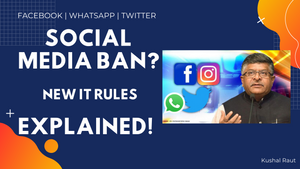
Your Android apps are all set to get faster
The time has come where a big change in the Android app development space is going to take place and Google is the one to order it. Google, in its Android developers blog, has intimated App developers to brace themselves for 64-bit requirements.
Advantages of 64-bit CPUs
''64-bit CPU deliver faster, richer experiences for your users. Adding a 64-bit version of your app provides performance improvements, makes way for future innovation, and sets you up for devices with 64-bit only hardware.''
Starting August 1st this year, all apps and app updates will require native code for 64-bit support in addition to 32-bit versions. Google will continue to accept 32-bit only updates to existing games that use Unity 5.6 or older until August 2021. Starting August 1st, 2021, Google will completely stop serving 32-bit apps to 64-bit capable devices. This will include games built with Unity 5.6 or older.
http://192.168.0.105/why-ads-on-the-internet/
Exemptions
However, it should be noted that these following requirements do not apply to Android Wear OS or Android TV. These form factors do not currently support 64-bit code. Also, APKs or app bundles that are not distributed to devices running Android 9 Pie or later are exempted from this rule. Do not worry if you have a 32-bit device as 32-bit apps will continue to work in the future.

http://192.168.0.105/update-schedule-for-samsung-devices/
Conclusion
The post ends with highlighting the advantages of the 64-bit architecture -
For those that already support 64-bit - thank you and great work! If you haven’t yet, we encourage you to begin any work for the 64-bit requirement as soon as possible. As we move closer to the deadline, we’ll be updating our developer documentation with more information on how to check if your app is compliant. We’re excited about the future that 64-bit CPUs bring in areas such as artificial intelligence, machine learning, and immersive mobile.






Comments